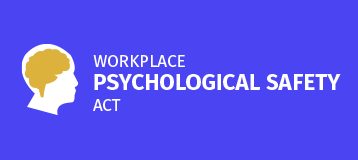My late sister-in-law was a long-term and highly regarded employee of DDS and was ready to retire in a few months. She had some attendance problems due to significant illness and provided her employers with doctor’s notes stating that she was impaired and needed to go on an intermittent Leave of Absence as per her condition. She was a 35+-year employee.
She was told that her doctor’s note would not be accepted and that she had to report to work or she would be terminated.
Laurie was single and could not afford to lose her job. She reported for duty on third shift and was instructed to work alone, although she felt uncomfortable doing so.
She suffered a stroke and died that evening on duty following an argument with her supervisor.
The center fought the family, whose lawyer told them what my lawyer told me: you cannot afford to fight the Commonwealth.
Due to my own egregious situation, I had worked with the union and recalled a similar incident a year before where an employee’s doctor note was not accepted, and she deceased on duty. My sister-in-law was the second fatality of this practice. What bothered me most is that I was informed by the family that the administration had questioned Laurie a month prior to her death and specifically asked if she’d been talking to me. My MCAD complaints had been getting quite a bit of publicity, and I had recently transferred to DMH (where they could not get me, but my personnel record was “lost” for the first year and I could not retire without seniority. It was later found in DDS after a friend who worked in DDS supported me).
I cannot express my total shock and aversion for a system that I had previously had much faith in when I heard that my sister had deceased on duty following administrative harassment emanating from an agency and facility that I had placed my trust in and had regarded highly for over 30 years.
When I worked for DMH as a peer counselor, I would find on a frighteningly consistent basis people reporting anxiety, depression, and even suicidal ideation regarding turmoil and harassment in their workplace.
We must impress upon our legislators how egregious and widespread this workplace bullying phenomena is and how it affects not only their Massachusetts workforce but the mental health of many of their constituents as well. As a DMH counselor, I personally supported many victims who reported to emergency services and crisis stabilization units where I worked. Currently, as a part time peer counselor working for a private vendor agency in crisis stabilization, I continue to see these individuals fairly consistently.
If I didn’t have my own personal experience as well as my experience working on the front lines in the mental health field, I would never know that workplace bullying existed and, quite honestly, I would likely have thought it was much ado about nothing and also that it would be too costly an undertaking for the Commonwealth.
Today, after all that I have experienced, I realize that it is too costly for the Commonwealth NOT to prevent workplace bullying.




